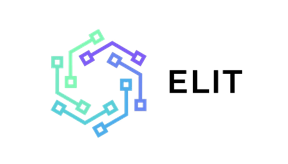OPEN DIRECTIONS IN QUANTUM SOFTWARE STACK: FROM NISQ to QUANTUM UTILITY
Abstract
Improvement in Quantum Computing (QC) performance will allow us to solve a wide range of complex problems that classical computers of today can’t handle. Nowadays we feel closer to achieving a state of Quantum Utility (QU) than ever before. Importance for both academia and business to understand the current state of technology and tooling, their extensibility points along with perspective optimization algorithms are on the verge. The purpose of the article is to provide a structured analysis of existing progress in QC. It serves a purpose of a guide on where significant progress is expected in the upcoming years, outlines details about tooling to start doing experiments, and introduces Quantum Computing Optimisation Middleware (QCOM) reference architecture as a backbone around which new building blocks are expected to be added in the upcoming years e.g. industry-specific enterprise connectors. The article reviews only the software stack, not considering opportunities for hardware as they seem to be much further away. This should help scientists and engineers to define a mental model of how to move forward to reach both mid and long-term goals toward QU.
Keywords: quantum computing, quantum utility, quantum algorithm performance, Quantum Computing Optimisation Middleware, error correction, qubit mapping.
Full Text:
PDFReferences
- Himanshu Sahu, Hari Prabhat Gupta. Quantum Computing Toolkit from Nuts and Bolts to Sack of Tools. 2023
- Marco Maronese, Lorenzo Moro, Lorenzo Rocutto, Enrico Prati. Quantum Compiling. 2021
- Y. Kharkov, A. Ivanova, E. Mikhantiev, A. Kotelnikov. Arline Benchmarks. Automated Benchmarking Platform for Quantum Compilers. 2022
- Google Claims a Quantum Breakthrough That Could Change Computing. Retrieved from https://www.nytimes.com/2019/10/23/technology/quantum-computing-google.html
- What is quantum supremacy? Retrieved from https://www.techtarget.com/searchsecurity/definition/quantum-supremacy
- Youngseok Kim, Andrew Eddins, Sajant Anand, Ken Xuan Wei, Ewout van den Berg, Sami Rosenblatt, Hasan Nayfeh, Yantao Wu, Michael Zaletel, Kristan Temme, Abhinav Kandala. Evidence for the utility of quantum computing before fault tolerance. 2023
- Why quantum ‘utility’ should replace quantum advantage. Retrieved from https://techcrunch.com/2021/11/11/why-quantum-utility-should-replace-quantum-advantage/
- What Is NISQ Quantum Computing? Retrieved from https://thequantuminsider.com/2023/03/13/what-is-nisq-quantum-computing/
- Friedrich Wagner, Andreas Bärmann, Frauke Liers, Markus Weissenbäck. Improving Quantum Computation by Optimized Qubit Routing. 2023
- N. Cody Jones, Rodney Van Meter, Austin G. Fowler, Peter L. McMahon, Jungsang Kim, Thaddeus D. Ladd, Yoshihisa Yamamoto. Layered architecture for quantum computing. 2012
- Quantum infrastructure software. Retrieved from https://q-ctrl.com/topics/quantum-infrastructure-software
- Differentiating quantum error correction, suppression, and mitigation. Retrieved from https://q-ctrl.com/topics/differentiating-quantum-error-correction-suppression-and-mitigation
- A. Paler, L. M. Sasu, A.-C. Florea, R. Andonie. Machine learning optimization of quantum circuit layouts, ACM Transactions on Quantum Computing. 2022
- Transpiler Passes and Pass Manager. Retrieved from https://qiskit.org/documentation/tutorials/circuits_advanced/04_transpiler_passes_and_passmanager.html
- Quantum error correction. Retrieved from https://q-ctrl.com/topics/quantum-error-correction
- Harrison Ball, Michael J. Biercuk, Andre Carvalho, Jiayin Chen, Michael Hush, Leonardo A. De Castro, Li Li, Per J. Liebermann, Harry J. Slatyer, Claire Edmunds, Virginia Frey, Cornelius Hempel, Alistair Milne. Software tools for quantum control: Improving quantum computer performance through noise and error suppression. 2020.
- Yuval Baum, Mirko Amico, Sean Howell, Michael Hush, Maggie Liuzzi, Pranav Mundada, Thomas Merkh, Andre R. R. Carvalho, Michael J. Biercuk. Experimental Deep Reinforcement Learning for Error-Robust Gateset Design on a Superconducting Quantum Computer. 2021.
- Pranav S. Mundada, Aaron Barbosa, Smarak Maity, Yulun Wang, T. M. Stace, Thomas Merkh, Felicity Nielson, Andre R. R. Carvalho, Michael Hush, Michael J. Biercuk, Yuval Baum. Experimental benchmarking of an automated deterministic error suppression workflow for quantum algorithms. 2022
- Andre R. R. Carvalho, Harrison Ball, Michael J. Biercuk, Michael R. Hush, Felix Thomsen. Error-robust quantum logic optimization using a cloud quantum computer interface. 2020
- Xiaofeng Gao, Zhijin Guan, Shiguang Feng, Yibo Jiang. Quantum Circuit Template Matching Optimization Method for Constrained Connectivity. 2023
- Alexander Zlokapa, Alexandru Gheorghiu. A deep learning model for noise prediction on near-term quantum devices. 2020
- Pulse. Retrieved from https://qiskit.org/documentation/apidoc/pulse.html
- Extending the Q# Compiler. Retrieved from https://devblogs.microsoft.com/qsharp/extending-the-q-compiler/
- J. M. Gambetta, A. D. Córcoles, S. T. Merkel, B. R. Johnson, J. A. Smolin, J. M. Chow, C. A. Ryan, C. Rigetti, S. Poletto, T. A. Ohki, Mark B. Ketchen, M. Steffen. Characterization of addressability by simultaneous randomized benchmarking. Physical Review Letters 109, 24. 2012
- L. Viola, E. Knill, S. Lloyd. Dynamical decoupling of open quantum systems. Physical Review Letters 82, 12. 1999
- OpenQASM Live Specification. Retrieved from https://openqasm.com/intro.html#scope
- A. Paetznick, K. M. Svore. Repeat-Until-Success: Non-deterministic decomposition of single-qubit unitaries. Quantum Information & Computation 14, 15–16. 2014
- S. Bravyi, A. Kitaev. Universal quantum computation with ideal Clifford gates and noisy ancillas. Physical Review A 71, 2. 2005
- Nils Herrmann, Daanish Arya, Florian Preis, Stefan Prestel. Quantum utility -- definition and assessment of a practical quantum advantage. 2023
- Nils Quetschlich, Lukas Burgholzer, Robert Wille. Predicting Good Quantum Circuit Compilation Options. 2023
- MQT Predictor: Automatic Prediction of Good Compilation Paths. Retrieved from https://github.com/cda-tum/mqt-predictor
- Arline Benchmarks. Retrieved from https://github.com/ArlineQ/arline_benchmarks
- Haiqu. Retrieved from https://www.haiqu.ai/
- Mykola Maksymenko LinkedIn profile. Retrieved from https://www.linkedin.com/in/mykola-maksymenko-4448a839/
DOI: http://dx.doi.org/10.30970/eli.21.9
Refbacks
- There are currently no refbacks.

 Electronics and information technologies / Електроніка та інформаційні технології
Electronics and information technologies / Електроніка та інформаційні технології